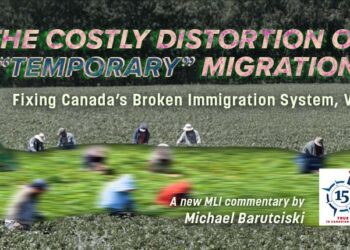
Reconciliation cannot be achieved by a naïve desire to put the past behind us. Rather, Canada must recognize how our colonial history hangs as an unjust millstone upon Indigenous societies, writes Ken Coates in the Toronto Star.
By Ken Coates, October 19, 2021
Canadians still struggle with the realities facing Indigenous peoples. Some run out the old “they should pull themselves up by their bootstraps” idea, ignoring structural barriers imposed by generations of government paternalism and marginalization. Even the argument that residential schools were a “good thing” has only slowly receded.
Though some progress is being made, many still think of Canada’s obligations to Indigenous peoples as being the same as obligations to “poor” Canadians. This approach implies that reducing Indigenous poverty is the country’s sole obligation.
But First Nations, Metis and Inuit peoples rightly see much broader issues at play, including their responsibility for traditional territories, existing and implied relationships with various governments, and their determination to sustain their languages and cultures. Indigenous peoples aspire to arrangements that, at a minimum, allow them to share in Canadian prosperity, have greater control over their traditional lands, the possibility of peaceful coexistence with others in Canada, and the prospect of sustaining their cultures.
At the root of Indigenous frustration, however, is a simple and incontrovertible fact: First Nations, Metis and Inuit peoples did nothing wrong, aggressive, or antagonistic to the government or the people of Canada.
No act undertaken by Indigenous peoples made justifiable the mass death wrought upon their societies by the importation of European disease. Indigenous people did not create the European sense of cultural superiority or the racial hierarchies that condemned their societies. They did, however, feel the full weight of deeply entrenched racism.
They did not ask missionaries to systematically undermine their spirituality and values, did not anticipate that governments and churches would turn schools from places of learning into cultural weapons, and could not have known that civil servants would be agents of domination rather than honest brokers.
Indigenous peoples neither designed nor had any say over the implementation of the Indian Act, which stripped them of many rights and privileges. Indigenous peoples did not bar themselves from voting, remove Indian status from individuals who went to university or joined a profession, block the right to establish a business, or ask to have Indian Agents run community affairs.
Remember that the early post-contact history of Canada was marked by generations of economic collaboration in the fur trade and related sectors. By and large, First Nations, Metis and Inuit were not conquered but rather agreed to cooperate with newcomers, signing treaties that covered large parts of the country. However, though the spirit of cooperation guided Indigenous conduct, the same cannot be said of the Crown and its representatives.
Contemporary court challenges in Ontario stem from the failure of the government to adhere to treaties consistently. Until the Marshal fisheries decision in 1999, governments ignored peace and friendship treaties. The numbered treaties never did live up to the spirit and word of what the Government of Canada committed to on behalf of the Crown. For generations, Northern peoples lacked treaties, despite asking for them, and even still, Canada has failed to implement many treaties in full.
When Indigenous peoples confront the realities of the past and present, they must do so with a sense of incredulity. Buffeted, sidelined, dominated, controlled, marginalized, and oppressed, First Nations, Metis and Inuit are coping with the multi-generational impact of newcomer actions, policies, and laws.
Understanding the weight of this history should lead any honest observer to a simple conclusion: collectively, Indigenous peoples are not responsible for their current conditions. They did nothing wrong. If Indigenous peoples made an error, it was in trusting in the Honour of the Crown and believing that successive governments would respect the spirit and word of their agreements.
Moving forward in partnership with Indigenous peoples requires understanding the past and appreciating the origins of the contemporary challenges. First Nations, Metis and Inuit people lived with the consequences of centuries-worth of decisions over which they had no input or control. Only recently have they been drawn into something approaching partnership with the Government of Canada and the country at large.
Reconciliation cannot be achieved by a naive desire to put the past behind us. Rather, Canada must recognize how our colonial history hangs as an unjust millstone upon Indigenous societies. Indigenous peoples live with historical realities where they did nothing wrong. Clearly, it is time to set things right.
Ken Coates is a Munk Senior Fellow with the Macdonald-Laurier Institute.





